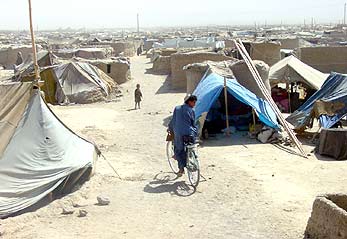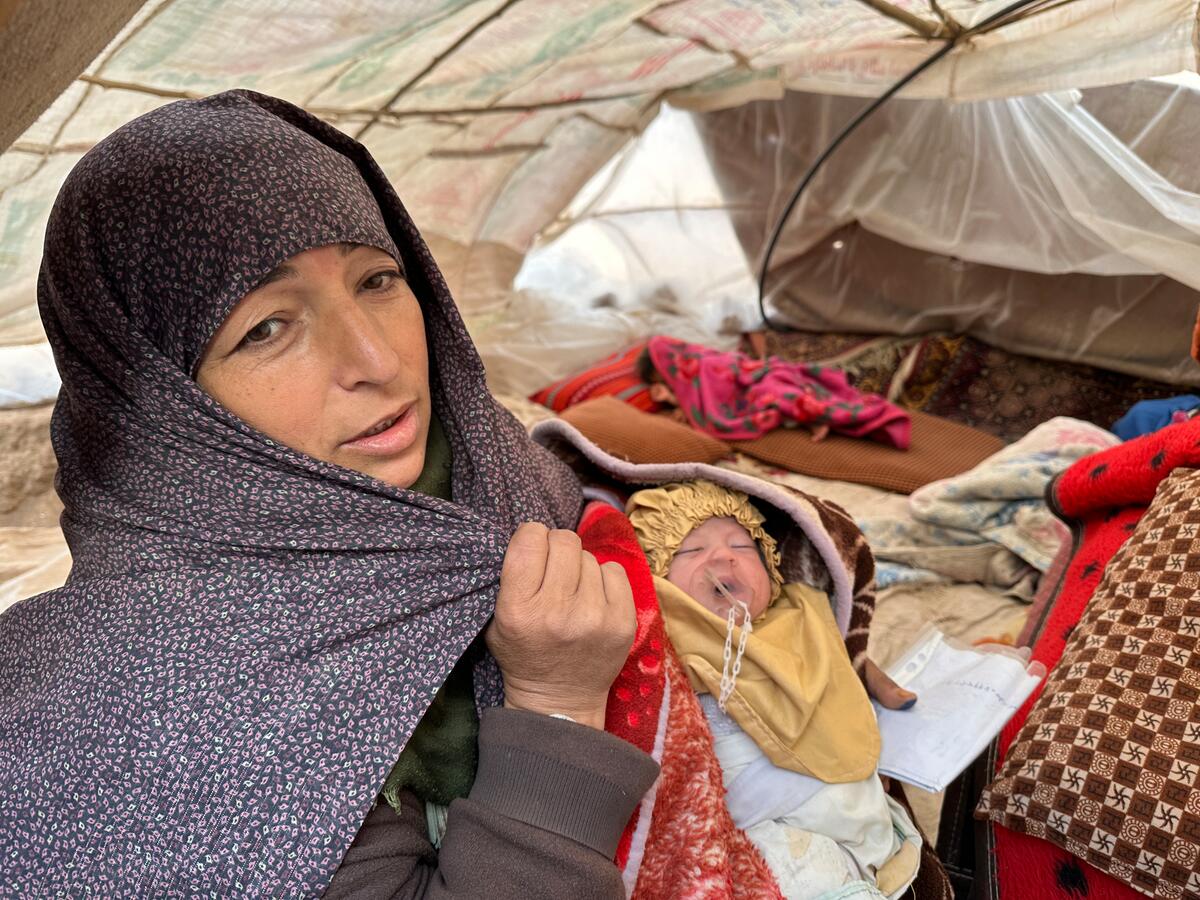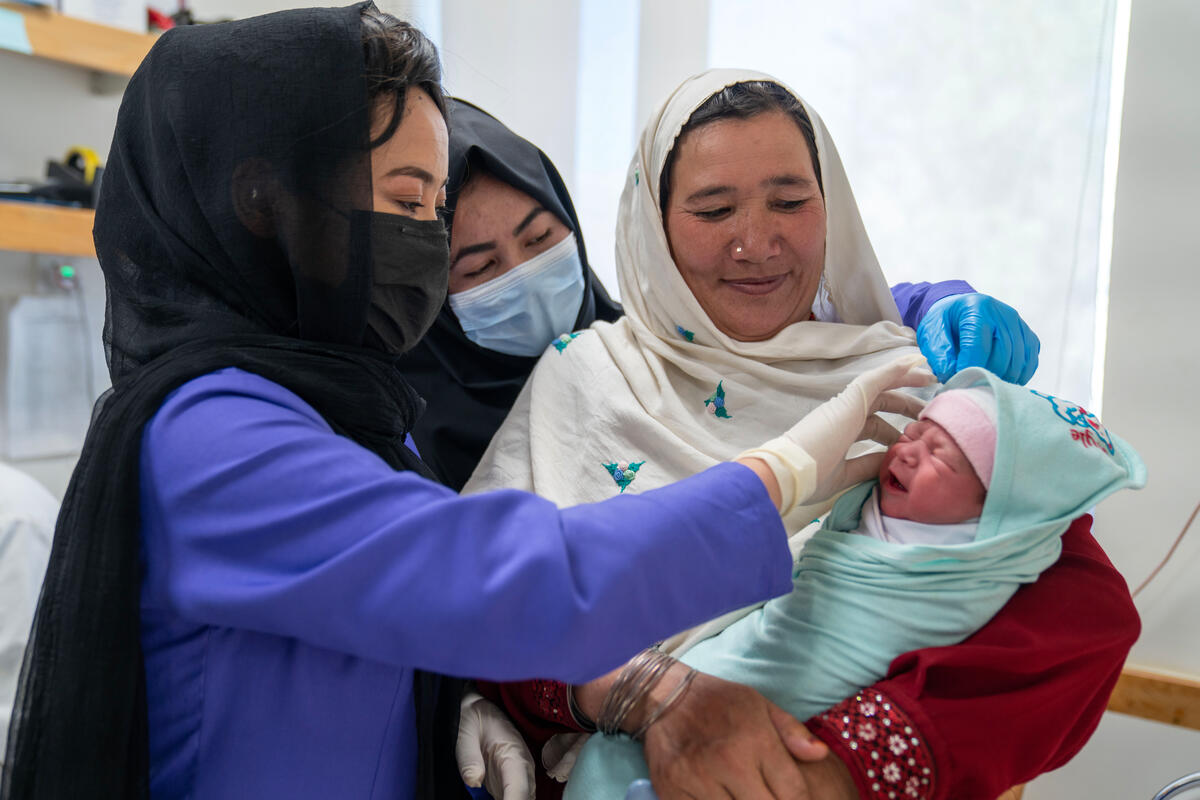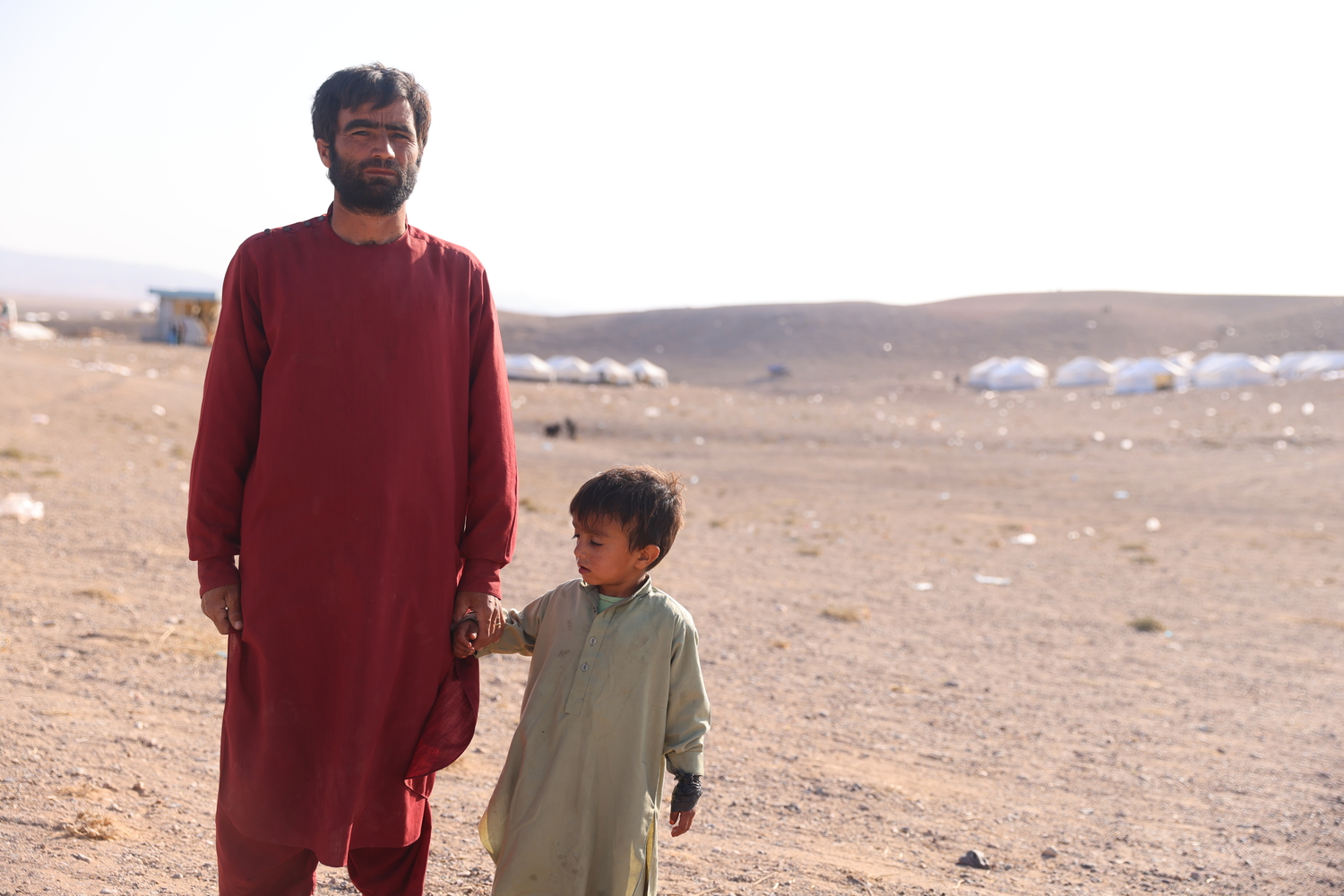Makeshift Afghan border camp set to close; residents face return or relocation
Makeshift Afghan border camp set to close; residents face return or relocation

ISLAMABAD, Pakistan, May 20 (UNHCR) - A makeshift encampment perched on the Afghan-Pakistani border criticised for its harsh living conditions in the months following the 2001 Afghan war is slated to close by the end of July, following an agreement by the two governments and the UN refugee agency.
Although life in Chaman's camp, known as the "waiting area", had improved through the provision of medical care, water and food, the continued concentration of thousands of Afghan asylum seekers in a desolate spot right on the border had long presented what was considered an unacceptable security problem.
Under the agreement reached by the governments of Afghanistan and Pakistan and UNHCR at their Tripartite Commission meeting on May 14, the remaining 19,626 residents of the area will be offered repatriation to Afghanistan or relocation to the existing Mohammad Kheil refugee camp inside Pakistan's Balochistan province.
All support for the "waiting area", which now includes a stream of daily water tankers financed by UNHCR and food supplies by the UN World Food Programme, will cease after distributions in July. The unofficial camp will then be closed.
"This was a situation that could not be allowed to continue," said Hasim Utkan, UNHCR's Representative in Pakistan. "We have found a solution that provides the asylum seekers with reasonable choices - we hope most accept a package of assistance to return to Afghanistan while those with continuing security concerns can move to an existing refugee camp inside Pakistan."
Some details remain to be decided, but residents will first be offered a chance to move back to Afghanistan. The two most likely destinations are a camp for internally displaced Afghans located just across the border in the Afghan town of Spin Boldak, which is becoming a permanent settlement. Others may go to the new site at Zhare Dasht, near the city of Kandahar, that UNHCR helped develop for displaced Afghans waiting to return home.
A package of assistance items for repatriation will be offered to the residents, who have dwindled from more than 26,000 a year ago because of previous relocations to Zhare Dasht.
Alternatively, those Afghans who still do not want to return to their country can move to the refugee camp of Mohammad Kheil, one of a string of camps that were opened near the border to house Afghans fleeing the US-led war that toppled the Taliban rulers of Afghanistan in late 2001.
At the end of July, anyone remaining in the "waiting area" would no longer receive UNHCR assistance or be considered refugees and would be treated according to normal Pakistani law.
The "waiting area" was a by-product of the mass movements of population triggered by the war against the Taliban. Pakistan, after initially trying to halt the influx of fresh refugees into a country that was already hosting more than three million Afghans from 20 years of previous conflict, let UNHCR open new refugee camps.
However, with the war in Afghanistan over but the movements of asylum seekers continuing, Pakistan announced in February 2002 that it was closing the border. Those still in the "waiting area" - named for its function in holding Afghans who were subsequently moved to the new refugee camps - were stranded on the barren stretch of bare earth.
It triggered a humanitarian crisis. Pakistan, fearing the establishment of a permanent settlement on the border, refused UNHCR permission to distribute tents. With temperatures dipping below freezing point and a constant wind lifting clouds of dust, the plight of the residents drew international concern.
Pakistan allowed the distribution of water and food, and last June let UNHCR give plastic sheeting to the neediest families. But authorities, fearing that it made control of the border and smuggling difficult, refused to allow the building of mud houses that would turn the Afghans into permanent residents. Last December, UNHCR made an emergency distribution of blankets and stoves after unconfirmed reports that children living in the ragged, home-made tents had died from temperatures of -10º Celsius.
However, UNHCR understood Pakistan's concerns and negotiated for months on a way to resolve the situation while protecting those who feared to return to Afghanistan. The new Tripartite Commission, which this month held its first meeting since the signing in February of an agreement to co-operate on refugee repatriation, provided the forum where the two governments could work with UNHCR to find a solution.
"Now the government is onboard with us," said Kwame Boafo, head of UNHCR operations in Balochistan. "It needs careful monitoring but I am confident that the government has everything under control."
Under the timetable decided at the Islamabad meeting, the Pakistan government's Commissionerate of Refugees will tell the Afghans in the "waiting area" details of the options to leave - including the package of assistance to repatriate to Afghanistan - over the next few weeks. Those opting to go home will then be assisted back during movements slated to start in June.
The remainder will then be offered a transfer to Mohammad Kheil refugee camp, two hours drive south-west of the provincial capital of Quetta. At the conclusion, the "waiting area" will be considered officially closed and will revert to the empty stretch of dry earth it was before the asylum seekers arrived.








